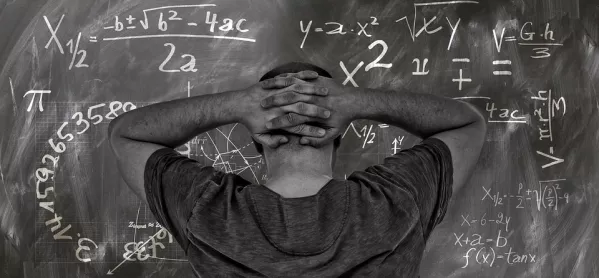- Home
- Almost 1 in 8 physics trainees don’t teach
Almost 1 in 8 physics trainees don’t teach

Physics trainee teachers are the least likely to achieve QTS, and those that do are increasingly unlikely to be teaching six months after training.
This is despite the fact that physics trainees could claim bursaries of up to £30,000 in 2016-17.
Official statistics on initial teacher training published today show that 83 per cent of the 820 physics postgraduate trainees obtained QTS in the 2016-17 academic year, down from 85 per cent in 2015-16.
And, of those physics trainees who were awarded QTS in 2016-17, 88 per cent were in a teaching post six months later - compared to 91 per cent of those in the previous year.
On average, 91 per cent of all secondary postgraduate trainees who finished their course in summer 2017 were awarded QTS and 94 per cent of those were in a teaching post six months later.
This is similar to the previous year, when 92 per cent of secondary trainees were awarded QTS and 94 per cent of those were in a teaching post six months’ later.
Physics attracted the highest bursary in 2016-17, when trainees who had a 1st or PhD in the subject were able to claim £30,000.
There has been concern that high bursary levels attract “bursary tourists”.
For trainees who are starting their courses in September 2018, the top bursaries have been reduced, with the highest payment available during now £26,000 for seven subjects, including physics.
The statistics also reveal:
1. The proportion of postgraduate teacher trainees in universities fell
Of the 27,065 postgraduate trainees in 2016-17, 45 per cent were at a higher education institution - down from 49 per cent in the previous year.
2. The number of Teach First final year trainees dropped
There were 1,385 Teach First trainees in their final year of initial teacher training in 2016-17, compared to 1,602 in 2015-16.
3. English, history, RE and biology teachers are most likely to be in work by Christmas
The statistics show 96 per cent of English, history, RE and biology teachers who have QTS are teaching six months after qualification.
Physics has the lowest employment rate (88 per cent) followed by art (90 per cent), languages (91 per cent) and computing (91 per cent).
4. Early years teacher trainees are more likely to be over 25 and white than teacher trainees
The statistics published today also included experimental statistics on trainees undertaking early years initial teacher training courses.
These show that of the 600 final year postgraduate early years trainees in 2016-17, 92 per cent were awarded early years teacher status (EYTS), and of those 93 per cent were in a teaching post within six months.
The statistics also revealed that 4 per cent of early years trainees were male, compared to 31 per cent of teacher trainees, 78 per cent were aged 25 or over compared to 56 per cent of teacher trainees and 11 per cent were from a minority ethnic group, compared to 14 per cent of teacher trainees.
5. The number of assessment-only candidates has nearly doubled in two years
The assessment-only (AO) route is for experienced teachers without a qualification and those with a teaching qualification from a different country. It allows candidates who can already show they can meet the Teachers’ Standards to gain QTS without the need for further training.
The experimental statistics show that in the academic year 2014-15, the first year that data was collected, there were 505 candidates undertaking AO.
In 2016-17, there were 1,030 candidates undertaking AO, most of them (440) were primary teachers.
“The increase could be a result of more complete reporting or a genuine increase in actual numbers undertaking AO,” the statistics release states.
There have been concerns that the assessment-only route could be used as a loophole to offer unregulated teacher training. The DfE is responsible for checking that providers meet the necessary requirements.
Tes’ parent company also owns TES Institute, which runs initial teacher training and assessment-only QTS programmes
Keep reading for just £1 per month
You've reached your limit of free articles this month. Subscribe for £1 per month for three months and get:
- Unlimited access to all Tes magazine content
- Exclusive subscriber-only stories
- Award-winning email newsletters



